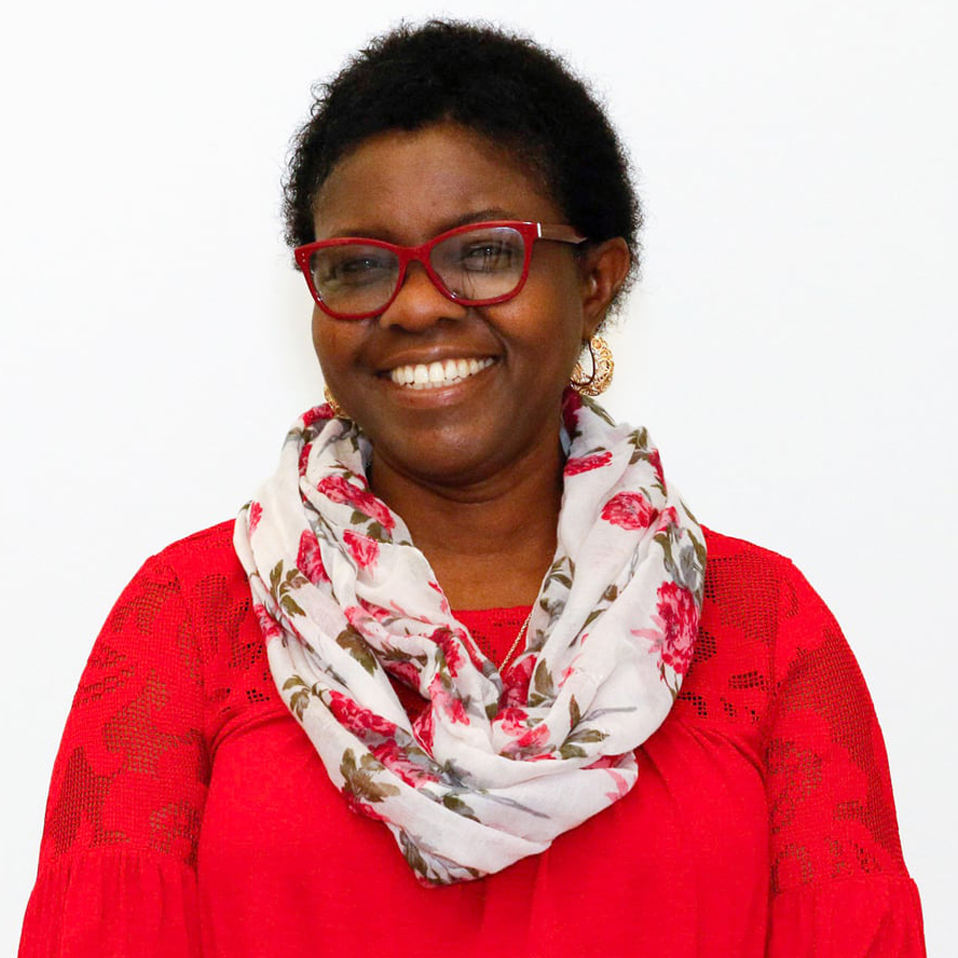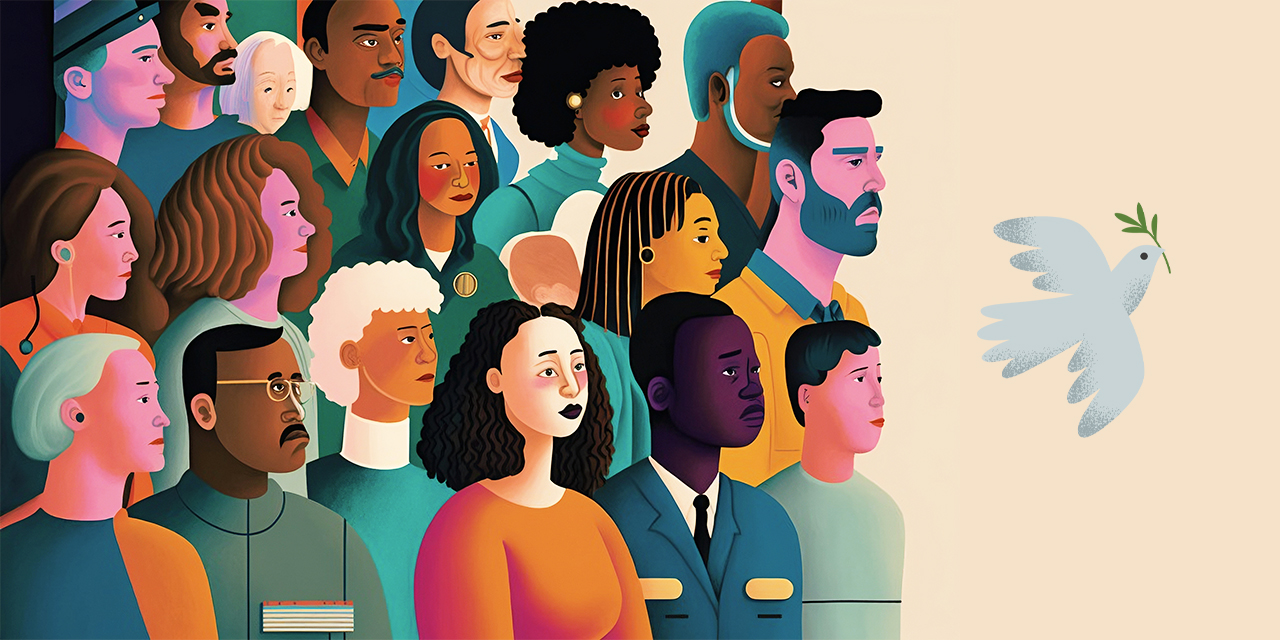
Immaculate Adesida
Immaculate Adesida serves as the co-senior pastor of Oasis Christian Fellowship in Pleasant Hill, California, and as the chair of the Sierra Pacific Conference’s Ministerial Education and Guidance Board while nearing completion of a Doctor of Ministry degree. She and her husband, Pastor Gbenga Adesida, came to Oasis in 2004 after a fruitful college ministry in Rochester, New York. They previously directed Oasis’ youth and young adult ministries and were sent to Concord, California, to plant Light to All Nations Church. This article is condensed from an article that previously appeared in the News of Undeniable Blessing newsletter and on the Sierra Pacific Conference Blog; click here for the original article.
By Immaculate Adesida
Scripture points us to care for the least of these:
“Then the King will say to those on his right, ‘Come, you who are blessed by my Father; take your inheritance, the kingdom prepared for you since the creation of the world. For I was hungry and you gave me something to eat, I was thirsty and you gave me something to drink, I was a stranger and you invited me in, I needed clothes and you clothed me, I was sick and you looked after me, I was in prison and you came to visit me.’ … The King will reply, ‘Truly I tell you, whatever you did for one of the least of these brothers and sisters of mine, you did for me.’” (Matthew 25:34–36, 40).
God has always looked out for the disenfranchised (Exodus 22:22-23, Isaiah 58:6-11, James 1:27). He told the Israelites He did not appreciate fasting for the sake of fasting or as a mere religious observance with no depth or true worship of God. Rather, He would prefer that they care for those in need and set the captives free.
If we are God’s children, we should have the DNA of the Father and, consequently, His love in our hearts for all people. Here are ways some believers and non-believers treat others as “less than”:
Discrimination
My first year in the United States, I went to an evangelical church in Texas. By the second Sunday there, one of the church leaders approached me and informed me that there was “a Black church” on the other side of the freeway where he felt I would be more comfortable. I thought his action was pretty strange. I was absolutely comfortable in the “White church” and was disappointed at his advice. I remained in that church until God moved me to New York for pastoral training.
_
“How did European missionaries who could not understand the languages of the Indigenous people in America or Africa spread the gospel to these lands?”
_m
Why should the church be the most segregated place on Sunday mornings instead of the most diverse place where the God of the Universe, Maker of all races, is worshipped? Someone might say homogeneity is good for the sake of those who prefer the same style of worship or the same accent that makes it easy for people to understand each other. But I ask: How did European missionaries who could not understand the languages of the Indigenous people in America or Africa spread the gospel to these lands? These Indigenous people could not understand the language of these Europeans either, yet they were converted and able to worship with them.
Some years ago, a new member of our church was shocked that both Whites and Blacks were from Adam and Eve. She stated she was taught from childhood that we did not come from the same parents. She had always looked down on the Black race as less than the White race. After she got saved and discipled, she became a different person and promoted diversity. This person was not born in the 1800s. She is only 50 years old. I wonder: How many members of our churches believe another race is “less than” and, as a result, discriminate and marginalize?
Labeling
A few days ago, a friend of mine asked if I could contribute to help a woman whose husband had just died. The woman, who was moving to another state with her children, needed food and gas money. My friend told me how strong the woman sounded on the phone and that the woman, whom she had never met, joined my friend’s online Bible study. My first thought was this was a scam. I labeled the woman without even knowing her. However, the Holy Spirit convicted me. What if the story is true? What if the woman is recently widowed with no money and is desperately in need? What if she has no church family or close friends to care for her?
_
“The God who created diverse people and cultures sees beauty in diversity, and we should too.”
_m
While in France on vacation, I walked to a bus stop and stood beside a White woman. She immediately moved her purse to her other side and moved away from me. I looked at her and moved my own purse to the other side as well and moved a few inches away from her while looking at her the whole time. My husband, who was standing beside me, knew I was in one of my “joking but teaching a lesson” moods and played along.
God loves everyone and wants us to do the same. The God who created diverse people and cultures sees beauty in diversity, and we should too.
The Sinner
Jesus clearly declared in Luke 5:32, “I have not come to call the righteous, but sinners to repentance.”
Jesus came to redeem mankind and bring us back to God through His death on the cross. As Romans 3:23 says, “for all have sinned and fall short of the glory of God.”
We may look down our noses on others who are not yet saved while forgetting that, but for the grace of God, “there go I.” God’s grace and goodness bring us to repentance (Romans 2:3-4).
We should not, as believers in Christ, look down on those who are sinners now or condemn them because we are saints by God’s grace. Rather we should be humble, pray for other people, and take every opportunity to share the good news of God’s kingdom with them.
When men brought the adulterous woman to Jesus, they saw her as the worst sinner. However, Jesus’ statement — “Let any one of you who is without sin be the first to throw a stone at her” — made them realize they were not better off in God’s sight (John 8:1-11).
_
“Jesus met her and made her understand that she was worth talking to.”
_m
The woman at the well (John 4) was marginalized because she had lived with so many men. She could not come to the well in the cool of the morning or evening when other women were there. She had to come at noontime when the sun was hot and there was no one at the well to look down on her. But Jesus met her and made her understand that she was worth talking to, although she was a Samaritan woman who had been with many lovers. Jesus’ conversation with her led her to salvation and to become the first evangelist for His kingdom.
Let us not write people off, because we do not know God’s plans for them. I am sure when the Apostle Paul was persecuting Christians, some thought he would go to hell. Little did they know that he was the vessel God would use to reach the Gentiles. That sinner — your next-door neighbor, co-worker, or family member — may be there because God wants to use you as a vessel to reach them.
Human Trafficking
I admire the abolitionists of the 18th and 19th centuries like John Wesley, William Wilberforce, William Booth and B.T. Roberts who stood against slavery. Today we have systemic slavery in the form of selling young girls for prostitution or poor families as migrant workers. Thank God for many Christians who are on the front lines, rescuing these girls and families from the hands of these modern-day slave traders.
I know many Christians are trying to save these young people from prostitution and slavery, but it seems to be a drop in the bucket. What else could be done? We need a movement like the abolitionists. We should make trafficking a major conversation in churches, politics, schools, offices and wherever else we could make a change and let people know the evil of being taken advantage of or held against one’s will.
Caring for the Poor
One of the major biblical mandates is the care for the poor. Proverbs 28:27 clearly states, “Those who give to the poor will lack nothing, but those who close their eyes to them receive many curses.”
_
“Christians are missing opportunities to make disciples if caring for individuals’ physical needs but neglecting to present the gospel of Christ…”
_m
Many Christian organizations try to fulfill this mandate through soup kitchens, food pantries, and food distribution sites. Some of these programs are also sponsored by nonprofit organizations or the government. Unfortunately, government programs may ban sharing the gospel with those being fed. Christians are missing opportunities to make disciples if caring for individuals’ physical needs but neglecting to present the gospel of Christ who, “when he saw the crowds, had compassion on them, because they were harassed and helpless, like sheep without a shepherd” (Matthew 9:36).
The Homeless
Our streets are filled with homeless people. Some were driven out of their homes due to foreclosure or inability to pay rent because of employment loss. Without jobs or means of income, they find themselves on the streets. Not everyone homeless on the street is a drug addict or has a mental problem.
I once served on a home mission trip in New York. It was my first time going out in the middle of the night to see where homeless people slept. I saw people sleeping on the walkways of buildings along the street with only boxes over their bodies in the dead of winter. I wept. We gave them blankets, food and Bibles, but I wished we had houses for them. One man worked but, because housing was too expensive, slept in a box. In the morning, he took his bucket to get water, cleaned up, packed his few belongings, and went to work in one of the city’s skyscrapers.
Sexism
Unfortunately, one of the most prevalent structural evils persisting in church occurs where the woman is viewed as “less than” despite Galatians 3:28. Although some institutions are beginning to counter gender inequity, this is still a stronghold in many denominations with church leaders misusing the Bible as a basis for this discrimination.
As an ordained woman and co-pastor with my husband, I find it interesting when people call my husband “pastor” but address me by my first name or “sister.” Some of these people find it difficult to come to terms with a woman being a pastor.
_
“The church has no right to forbid the free exercise of abilities to do good which God has given.” – B.T. Roberts
_
B.T. Roberts, founder of the Free Methodist movement, wrote in 1891, “All restrictions to positions in the church based on race have been abolished; it is time then that those based on sex were also abolished. The church has no right to forbid the free exercise of abilities to do good which God has given. To do so is usurpation and tyranny. Men had better busy themselves in building up the temple of God, instead of employing their time in pushing from the scaffold their sisters, who are both able and willing to work with them side by side.”
We serve a God who loves diversity and revealed this in nature. Unfortunately, humans in their fallen state took advantage of this diversity to divide and conquer, the strong imposing their will on the weak. When Jesus walked among us, He made us to understand the need for a balance of power with the privileged taking care of the weak and disenfranchised. The way others will know we are His disciples is if we have love one for another manifested in our care for “the least of these.”
+

Immaculate Adesida
Immaculate Adesida serves as the co-senior pastor of Oasis Christian Fellowship in Pleasant Hill, California, and as the chair of the Sierra Pacific Conference’s Ministerial Education and Guidance Board while nearing completion of a Doctor of Ministry degree. She and her husband, Pastor Gbenga Adesida, came to Oasis in 2004 after a fruitful college ministry in Rochester, New York. They previously directed Oasis’ youth and young adult ministries and were sent to Concord, California, to plant Light to All Nations Church. This article is condensed from an article that previously appeared in the News of Undeniable Blessing newsletter and on the Sierra Pacific Conference Blog; click here for the original article.









